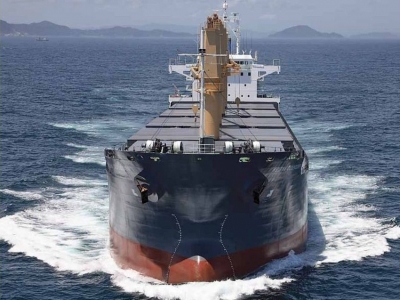A need for careful implementation of IMSBC Code
To ship dry bulk cargoes safely it is vital that ships masters receive clear, accurate and reliable information on the properties and characteristics of cargoes and the required conditions for safe carriage and handling. This is a SOLAS requirement reinforced in significant detail in the International Maritime Solid Bulk Cargoes Code (IMSBC Code), mandatory since 1 January, 2011.
But there is increasing evidence that this is not happening in every case.
The consequences of failing to meet these requirements were seen last year when 44 seafarers lost their lives within 39 days in three casualties: Jian Fu Star (27 October: 13 fatalities); Nasco Diamond (10 November: 21 fatalities) and Hong Wei (3 December: 10 fatalities).
Typical problems experienced by our members include:
– Using cargo trade names and not the Bulk Cargo Shipping Name (BCSN);
– Confusing cargo identification and correct identification of cargo group whether a cargo is a Group A (prone to liquefaction), Group B (representing a chemical hazard) or Group C (not prone to liquefaction or representing a chemical hazard) for example declaring a cargo as a Group C cargo (not prone to liquefaction) but providing a Transportable Moisture Limit (TML) indicating that the cargo is prone to liquefaction.
– Obtaining accurate and reliable data, particularly moisture content of Group A cargoes, determined in accordance with IMSBC Code procedures.
– Obtaining correct documentation for cargoes not listed in the IMSBC Code. Cargoes not listed in the Code should be carried under the clear provisions of Section 1.3 of the IMSBC Code, with the competent authority of the port of loading providing the master with a certificate stating the characteristics of the cargo and the required conditions for carriage.
Intercargo believes that these problems stem, in part, from confusion or ignorance concerning the application of the IMSBC Code or in some circumstances malicious misrepresentation.
If we are to prevent further casualties it is essential that all parties involved in the transportation of dry bulk cargoes understand and implement the provision of the IMSBC Code, most crucially providing accurate and reliable cargo declarations said Ian Harrison, Intercargo technical manager.
Issues raised at MSC 89
It is in this context that Intercargo welcomed a proposal from China submitted to the 89th session of the IMO Maritime Safety Committee (MSC) held 11-20 May, in response to the loss of Chinese seafarers in last years three casualties.
Intercargo submitted a paper, co-sponsored by BIMCO supporting the main proposals in particular: developing a scheme for ensuring reliable independent sampling, testing and certification of cargoes; and enhancing education for ship and shore personnel involved with the shipment of dry bulk cargoes with an emphasis on accurate cargo declarations to ensure only safe cargo is loaded.
The MSC agreed to forward these papers for further consideration of the proposals to the Sub-committee on Dangerous Goods, Solid Cargoes and Containers (DSC) that will meet in September 2011.
Intercargo also supported a proposal at MSC 89 to allow more time for the on-going development and updating of the IMSBC Code through the use of an Editorial and Technical group. The Committee agreed to modify the existing E&T groups terms of reference (considering IMDG Code amendments) to include consideration of the IMSBC Code amendments.
We welcome the commitment to safety shown by IMO in dedicating more time to IMSBC Code amendments and the widespread support of member states to consider the development of independent sampling, testing and certification for dry bulk cargoes added Intercargo technical manager, Ian Harrison
Source: Intercargo




























































